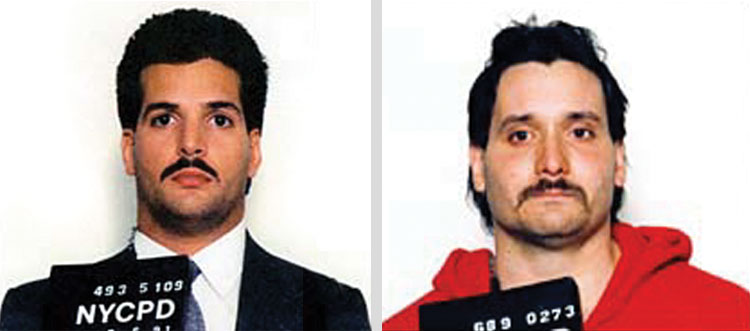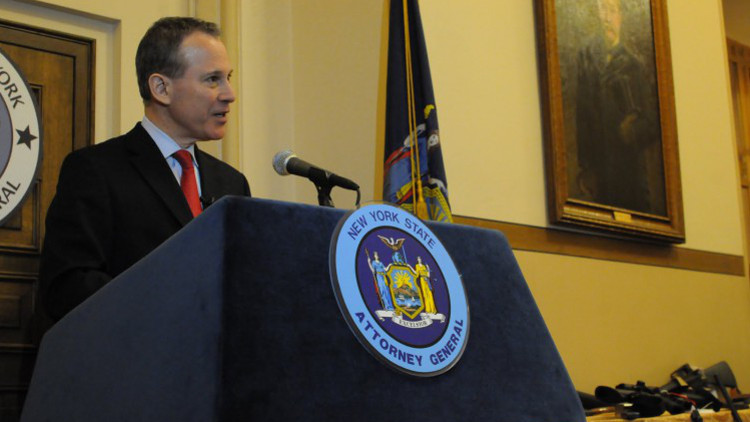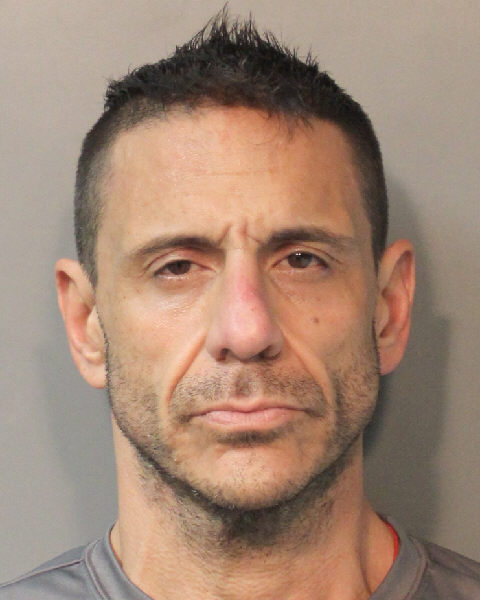• Led “Landmark” Bureau Created to Address Wrongful Convictions
• Sudden Departure Comes Amid Criticism From Nassau & Queens D.A.s Over His Recommendation to Free Queens Father of Two, Convicted Sex Offender Ronald Bower
• Stated it “Highly Unlikely” Bower Committed Sex Crimes
• Team of Independent Investigators Continue To Seek Bower’s Exoneration
Thomas Schellhammer, the chief of New York State Attorney General Eric T. Schneiderman’s Conviction Review Bureau, has abruptly left that position, the Long Island Press has learned.
Whether the highly regarded assistant attorney general and former homicide prosecutor in the New York County District Attorney’s Office resigned or was ousted is not immediately clear.
“He’s actually no longer with the attorney general’s office,” a woman answering the phone at Schneiderman’s Albany office confirmed Wednesday, before referring further inquiries to “his old number” where “maybe somebody in the office there will pick up and can help you.”
They didn’t, follow-up calls have been met with the same response, and attempts to reach Schellhammer outside the office have been unsuccessful. The attorney general’s press office Thursday did not immediately respond to questions regarding Schellhammer’s unceremonious exit, either.
What is known, however, is that Schellhammer’s sudden departure comes amid sharp criticism from Nassau County District Attorney Kathleen Rice and Queens District Attorney Richard A. Brown’s offices regarding his support to free 52-year-old Queens father of two, Ronald Bower.
Bower, a former security guard at Douglaston Mall, has spent nearly 23 years in prison for heinous sex crimes an ever-growing number of law enforcement officials believe he did not commit. Supporters who seek the reversal of Bower’s convictions and his complete exoneration include current or former members of the NYS Inspector General’s Office of the state Department of Corrections and Community Supervision, the Federal Bureau of Investigation, state Division of Criminal Justice Services, and even members of the very sex crimes unit that originally arrested and charged him. This independent team of investigators has concluded—and produced a mountain of evidentiary documents to prove—that Bower is innocent, believing the real perpetrator is likely a former New York City police officer.
Schellhammer wrote a letter to the Parole Board at Clinton Correctional Facility in late December, urging Bower’s “earliest” release in the best interest of society, and stating it “highly unlikely that Bower committed the crimes for which he was convicted.” Bower’s is the only case to date that his office has asked the Parole Board to consider granting parole to an inmate.
That set off fireworks, not only among Parole Board commissioners—who slammed the AG’s Office and the district attorneys’ offices of both counties for failing to seek full exoneration and leaving them with the uncomfortable responsibility of releasing what the judicial system deems a violent sexual predator—but among prosecutors as well, with both district attorneys’ offices then blasting the AG’s office and Schellhammer, in particular, claiming ignorance of any probe into Bower and alleging that they were completely blindsided. Schneiderman’s office “vigorously disputes” that charge, according to an article in the New York Law Journal last month.
All three agencies—the attorney general’s office and the Nassau and Queens DA’s offices—have asked the Parole Board to “re-examine” its decision on Bower’s release. The Nassau DA’s office is also conducting a “comprehensive review” of his case, according to correspondence between it and the attorney general’s office cited by the Journal.
Rice, a Democrat, lost a close primary race for attorney general to Schneiderman in 2010. She announced in January that she is running to replace nine-term incumbent Congresswoman Carolyn McCarthy (D-Mineola), who is retiring at the end of this year, and has raised nearly $1.5 million since then for her bid, according to nonprofit OpenSecrets.org.
Schneiderman, a former state senator, heralded the creation of the Conviction Review Bureau as a “first-of-its-kind statewide,” “sweeping” and “landmark initiative to address wrongful convictions in New York” in his office’s official April 11, 2012 press release, touting its mandate “to help New York’s criminal justice system maximize its ability to convict the real perpetrators of crimes, while preventing innocent people from being penalized for crimes they did not commit.”
“There is only one person who wins when the wrong person is convicted of a crime: the real perpetrator, who remains free to commit more crimes,” he expounded at the time. “For victims, their families, and any of us who could suffer the nightmare of being wrongly accused, it is imperative that we do everything possible to maximize accuracy, justice, and reliability in our justice system.
“As a result, my office will be working with District Attorneys across the state to address compelling claims of innocence, and I will conduct a top-to-bottom review of my office’s investigatory and prosecutorial procedures, and adapt them as needed to ensure reliability,” he continued.

Bower was then-30-years-old when he was picked up May 10, 1991 mid-shift at the mall, made to change out of his security uniform into a hooded sweatshirt that matched the description two teenagers described an assailant who allegedly sexually attacked them at gunpoint on a rooftop in Corona as wearing, according to court documents. His arrest came on the heels of a tip from his estranged father-in-law, a retired NYPD detective who knew one of the detectives in the Queens sex crimes unit, and who told a sergeant there that a mysterious sketch bearing a near-perfect likeness to Bower that appeared in the local newspapers alongside a description of the purported attack, resembled his son-in-law, according to court documents, affidavits and investigators. The girls ultimately recanted, telling investigators they’d made the incident up, state court filings.
Yet instead of freeing Bower, who had no prior criminal record and owned neither a car nor a gun, he was paraded through up to 28 or more lineups for a series of sex crimes along the Nassau-Queens border in 1990 and 1991. Internally, investigators dubbed the attacks—which often included forced oral sex, sodomy and rape at gunpoint, usually involving a silver .38 revolver and sometimes up to two victims at a time—the work of the “Silver Gun Rapist,” and labelled them “Pattern #1/91.”
Bower was eventually convicted for two of those attacks, primarily on eyewitness testimony, and has maintained his innocence ever since. Despite his incarceration, the pattern attacks continued for three months after he was already in custody, according to state court documents and investigators, ending with the arrest of another man—a New York City police officer named Michael Perez—who unbeknownst to Bower or his attorneys at the time, was arrested and charged in two other such similarly patterned alleged sexual attacks. Unlike Bower’s wardrobe switch, police allowed Perez to change out of the clothes he was arrested in and instead wear a suit and tie for his mug shot. Investigators later discovered Perez was off-duty during each of the pattern attacks, had access to a car, owned nearly a dozen guns—including a silver and a black .38 revolver (one of which was discovered in his possession when police arrested him for a similar sex attack in August 1991, one of two such cases he was eventually acquitted of)—and bore a striking resemblance to Bower, according to court documents, investigators and two New York Times articles at the time.
Schellhammer, explaining his reasoning for recommending Bower’s release in his Dec. 30, 2013 letter, cited an extensive, ongoing investigation into the father of two’s case that included speaking with investigators and witnesses associated with the crimes he was convicted in an attempt to reconstruct those events.
“This position is based upon several factors,” his letter states. “a) His physical resemblance to another person who committed identical crimes at about the same time as these in question, some of which occurred after Bower was in custody; b) the possible mis-identification of Bower as the perpetrator of these crimes by the victims; c) the lack of a propensity or any other prior indicator that Bower was inclined to commit offenses of a sexual nature; and d) the probability that Bower had an alibi for the nights in question.”
Shellhammer’s departure amid such contention about Bower’s release raises obvious questions regarding the impetus behind his exodus (one being whether or not he is simply a victim of blood-lust politics, damn the possibility of freeing a wrongly convicted man), and casts doubts upon Schneiderman’s sincerity toward the bureau’s stated mission—actually righting such horrific wrongs and seeking out, as the attorney general so eloquently stated back in 2012, “the real perpetrator(s), who remain free to commit more crimes.”
Few would dispute that Schellhammer’s recommendation for parole couldn’t be interpreted as at least a little embarrassing for prosecutors—and, should Bower one day be exonerated, costly to the state—though when it comes to what’s at stake, a man’s life, not to mention the shattered lives of victims throughout Nassau and Queens whose attacks still remain unsolved, it shouldn’t be, but rather, a call to arms to thoroughly get to the bottom of these brutally horrific atrocities.
That’s a plea Bower’s longtime attorney, Nassau Legal Aid Society Appeals Bureau Chief Jeremy Goldberg, has recently taken to the public in the hopes of not only exonerating his client, but obtaining justice for so many victims.
In a recent, painfully emotional jailhouse interview at Clinton Correctional Facility—dubbed “New York’s Siberia” for its isolation and arctic temperatures among the Adirondacks just south of the Canadian border—Bower repeated what he’s been saying for nearly 23 years:
“I’m innocent!” he cried, his face distorted and drenched in tears. “I never done nothing to nobody!”
Schellhammer, charged with re-investigating potential wrongful conviction cases and compelling claims of innocence, was simply the latest law enforcement official to believe him.
UPDATE: Four hours after the publishing of this story, Schneiderman’s office issued an official press release announcing the appointment of Gail Heatherly, former head of the Attorney General’s Criminal Prosecutions Bureau, to lead the Conviction Review Bureau, and reiterating his professed commitment to freeing the wrongfully convicted and holding true perpetrators accountable:
“Those who are wrongfully convicted and imprisoned for crimes they did not commit deserve to have an advocate who will fight for justice, both for the wrongly accused and for the victims of the original crime,” says Attorney General Schneiderman. “The only person who benefits when the wrong person is convicted of a crime is the real criminal, who remains free to commit more crimes.”
The press release provides zero insight into Schellhammer’s departure, and Schneiderman’s office has still not answered a request for an explanation from the Press.
UPDATE II: Attorney General Schneiderman’s Press Secretary Matt Mittenthal tells the Press his office has “no comment.”



































